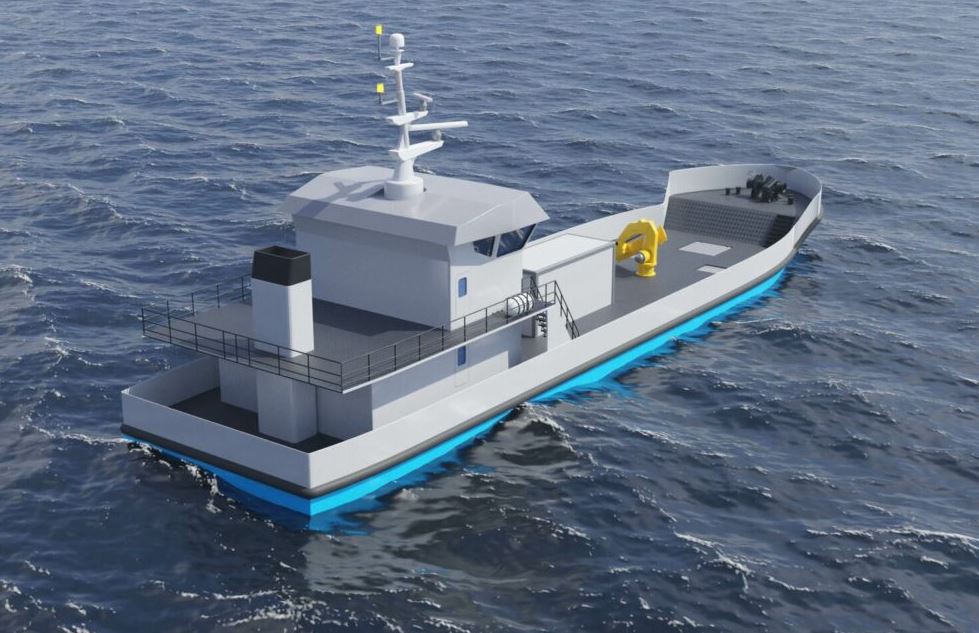The construction of Lithuania’s first hydrogen-electric ship has commenced at Western Baltija Shipbuilding (WBS).
A keel-laying ceremony for the 42-meter-long and 10-meter-wide ship, designed to collect 400 cubic meters of liquid waste, was held on June 21, 2024. Equipped with two electric motors powered by batteries with a capacity of 2000 kWh and an onboard hydrogen fuel cell system, the ship can operate within the Port of Klaipeda for up to 36 hours on a single charge. The construction involves the hull, superstructure, wheelhouse, and installation of cargo systems, all taking place at WBS.
The ship’s primary challenge lies in its waste management capabilities, necessitating tanks for waste collection and an oily bilge water treatment plant to process and transfer waste to an onshore treatment facility. This technological integration, while innovative, must meet stringent environmental standards to ensure it delivers on its promise of minimal environmental footprint.
The Estonian company Baltic Workboats is tasked with installing the main and auxiliary machinery, as well as harmonizing and testing all systems. The hydrogen fuel cell system, also installed in Estonia, represents a significant technological advancement. However, the real test will be in the operational efficiency and environmental impact during active service.
Globally, hydrogen-electric vessels are still emerging, with various countries piloting similar projects. For instance, Norway’s MS “Hydra,” a hydrogen-powered ferry, serves as a benchmark. Lithuania’s project, while ambitious, must be compared against such industry standards to gauge its success. The operational duration, waste management efficiency, and actual emissions reduction will be critical metrics.
The €12 million project, commissioned by the Klaipeda State Seaport Authority and constructed under a joint operating agreement with Baltic Workboats, highlights the strategic importance placed on green energy by Lithuania. According to Algis Latakas, Director General of the Klaipeda State Seaport Authority, this project underscores Lithuania’s commitment to green hydrogen and environmental sustainability.
